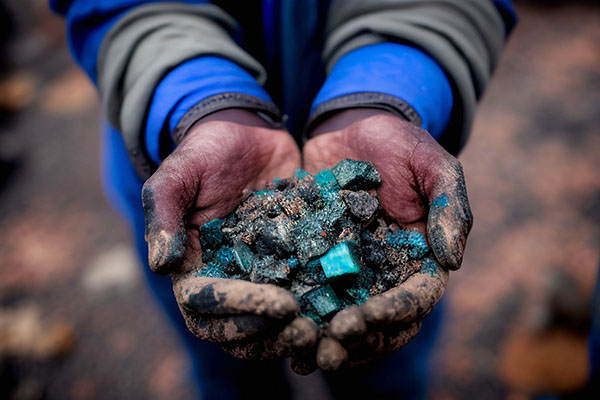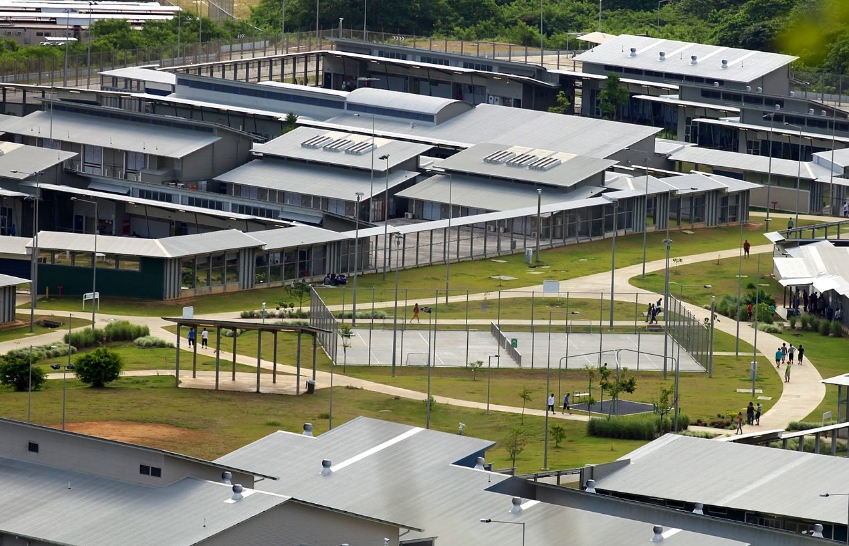
Known as the world's "king of cobalt," the DRC has long been regarded as the world's largest producer of the metal, accounting for nearly three-quarters of global output in 2022. A third of that output comes from the country's informal mining sector, made up of artisanal miners and children who often work with no safety equipment in dangerous, hand-dug mines. (Related: Big Tech demand for cobalt drives SLAVE MINES in the Congo.)
Cobalt has become an essential component in the creation of lithium-ion batteries for EVs, and its extraction has come at a high price.
A recent report released by Amnesty International and the Congo-based NGO Initiative for Good Governance and Human Rights (IBGDH) details how the search for metals has forcibly uprooted people from their homes and farms, often without compensation or adequate resettlement.
The IBGDH report said some of these forced evictions are even conducted with the help of the Congolese military. In one case from November 2016, Congolese soldiers burned down the settlement of Mukumbi in the southern province of Lualaba to make way for a cobalt and copper mining operation led by the Dubai-based Chemaf Resources.
Village chief Ernest Miji was told in 2015 by a Chemaf representative and several police officers that Mukumbi's residents had to move away. Residents who tried to resist were beaten by the military.
Without admitting to any wrongdoing, liability or involvement in the destruction of Mukumbi or the allegation that the company directed military forces to destroy the village, Chemaf agreed to pay $1.5 million through local authorities, with former residents of the village only receiving between $50 and $300 – an amount that local advocacy group Coalition for Safeguarding Human Rights called an extreme undervaluation of the losses of the victims.
China dominating supply of cobalt from the DRC
According to industrial estimates, about 80 percent of all the cobalt mined in the DRC is shipped to China. Chinese firms, such as Chengtun Mining, China Molybdenum, CMOC, Wanbao and Jinchuan own 15 of the 19 largest cobalt mining assets in the DRC, including the Tenke Fungurume and Sicomines, both of which alone account for 20 percent of global cobalt extraction.
All of this cobalt taken from the DRC helps China account for 76 percent of global refined cobalt production. Its share in chemical refining for the production of lithium-ion batteries is even higher at 91 percent – from the ore to processing, from active materials to cells and ultimately to the packs.
Huayou Cobalt is the largest refiner, with a production of more than 38,000 tons.
China is also tagged as the source of essential minerals that "run the world" – nearly 60 percent of aluminum, also used in EV batteries, and 80 percent of poly-silicon, an ingredient in solar panels.
It has an even tighter grip on rare-earth minerals that go into crucial technologies, like making smartphone touch screens and missile-defense systems, accounting for 90 percent of their refining, according to the International Energy Agency.
Visit RoboCars.news for more news related to electric vehicles.
Watch the following clip from Fox News showing how American consumers are not excited about the White House's push for more electric vehicles.
This video is from the NewsClips channel on Brighteon.com.
More related stories:
Experts warn that a worldwide lithium shortage could come as early as 2025.
GREEN SHORTAGE: Lack of lithium preventing Indonesia from becoming a global hub for EVs.
Sources include:
Please contact us for more information.






















